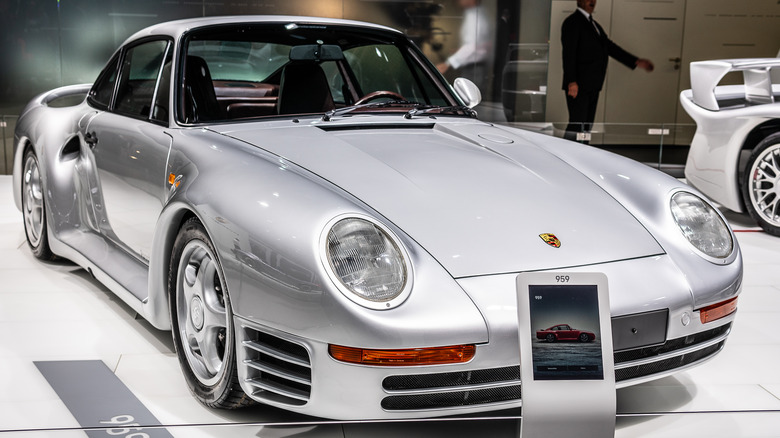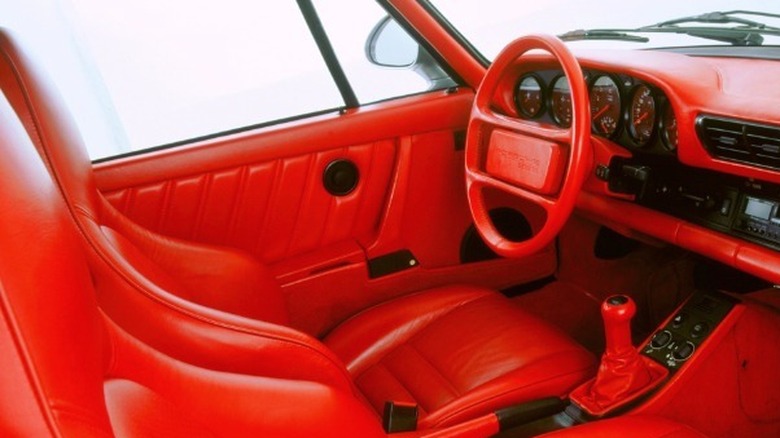The Real Reason America Banned The Porsche 959
The Porsche 959 — a rare and limited edition racing car— joined the infamous NHTSA blacklist in the late '80s, making it illegal to drive on U.S. streets or import through normal channels. Other illegal super sports cars on the list include: the Lamborghini Strosek Diablo, the Jaguar XJ220S, and the Lotus Elise Series 1.
Porsche remembers that despite its launch price of 420,000 Deutschmarks — $225,000 according to Hot Cars — the 959 sold out fast. The 959 became world-famous for being the fastest car in production. Porsche wanted to take the 911, a top-selling model, to the extreme. With a bi-turbo flat engine that featured water-cooled 4-valve cylinder heads, an all-wheel-drive system, and an ultralight aerodynamic body, it became the most advanced Porsche.
The 959 was a beast with 450 horsepower, did 0 to 60 in 3.7 seconds, and had a top speed of 198 miles per hour in its 959 Sport version. Sports Car Digest explains that innovative lightweight materials and the improved 911 engine gave the car its speed. The doors and hood were built of aluminum, the body was made of a Kevlar composite, and even the wheels were crafted on lightweight magnesium alloy.
Why the Porsche 959 did not pass U.S. Street safety tests
The Porsche 959 was also famous for giving Bill Gates some headaches. Gates ordered one only to see it impounded by U.S. customs because the car was illegal to import. It took Gates 13 years, but eventually, he got his 959 thanks to an exemption in import laws called "Show and Display", peer Hot Cars. Under the "Show and Display" clause, a car that had not passed crash, emissions, or other tests, could be imported if it was in the public interest to show or display it. The question is: why did the Porsche 959 never pass the U.S. safety tests?
In reality, the 959 did not actually fail the U.S. tests, but never took them. Hot Cars explains that Porsche lost about $500,000 for each 959 sold, due to the complexity of the car. The exchange rate between the U.S. and the German currency of the time was also unfavorable. Additionally, Porsche only made a couple of hundred 959s, each a very expensive machine. The NHTSA tests to approve a car for the U.S. require 4 cars to be crashed, and Porsche, who had already decided to focus on the European market, did not want to sacrifice four cars.
Porsche only produced 292 Porsche 959s, and only 29 units of those were 959 Sport versions. The Sport version added an additional 65 horsepower thanks to its modified turbochargers, increased boost pressure, adjusted ignition, and fuel injection. "In a test conducted by the specialist magazine Auto, Motor & Sport, the 959 S achieved a top speed of 339 km/h," Porsche says.

